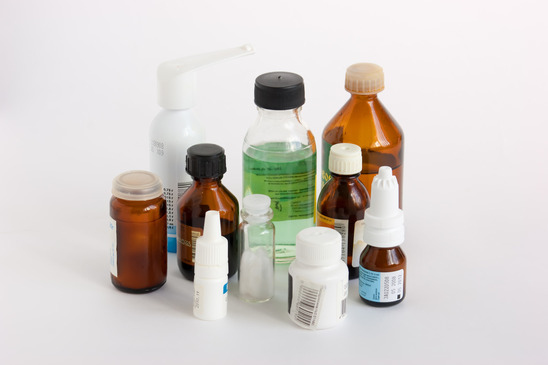Why Some Parents “Lobotomize” Their Children
You’ve been prescribed a medication by your doctor. Of course, it’s been approved for your specific condition, right?
Actually, sometimes no.
If you’re like many other people, you probably don’t question the safety of a medication prescribed by your doctor. You assume that it’s designed to solve just what you have.
The truth is, more and more doctors are prescribing off-label medications without telling their patients.

What is an Off-label Medication?
An off-label medication is a drug prescribed with a dosage, form of dosage, or for a purpose that the FDA has not specifically approved of, yet.
Here are some examples:
- Dosage
- Form of dosage
- For a different purpose
Prescribing off-label medication is more common than you think.
Studies done in 2006 indicate that about one in every five prescriptions qualify as off-label medication. So essentially, if you look back at the past 5 prescriptions that you have received, there is a good chance that at least one of them was off-label.
Risks vs. Benefits
Doctors are not required by law to tell patients that they are prescribing an off-label medication. Plus, they are not liable for off-label medication usage. As a patient, if you don’t ask questions and take an active role in your healthcare, you may never know if the medication you are taking is FDA approved or not.
While doctors can prescribe off-label medications, drug companies cannot market off-label usage. However, off-label medications are not inherently bad. Oftentimes, drug companies do not want to go through the lengthy and arduous process of having a drug usage approved by the FDA. But, they have done their own studies on effectiveness and safety.
While drug companies can’t market for these usages, they can answer a doctor’s question about a medication.
When being prescribed a new medication, ask your physician directly if it is an off-label medication. If it is, ask if he has prescribed the medication for this usage before and how successful it has been in treating the ailment. Also, ask what kind of side effects it can have and if there are any drug interactions.
If you aren’t comfortable using an off-label medication, ask your doctor to prescribe the standard medication for your condition.
Are Newer Drugs Better?

Common sense tells us that a newer version of a product is usually better.
Older versions have kinks that need to be worked out. Newer versions are supposed to address these issues for a bigger, better product.
However, when it comes to drugs, some experts have been wondering whether “new and improved” is accurate.
Newer and More Expensive
Between newer and older drugs, newer drugs are usually much more expensive. Take a look at antipsychotic drugs for example. Haloperidol, an older antipsychotic, runs between $18 and $27 a month. A newer version antipsychotic olanzapine can get up to $546 a month.
We aren’t talking nickels and dimes here.
Are consumers paying more money for a better product or is it just the drug industry’s way of making more money?
Oftentimes, it comes down to exactly what a drug will treat and how it works. New drugs will have new compounds and will affect the body in different ways. “Different” isn’t necessarily better. It’s just different.
Sometimes, an older drug might work just as well as a newer one. Always talk the situation over with your doctor.
Newer and More Effective?
The biggest factor when looking at the older vs. newer debate is whether the newer version provides better treatment than the older version does.
Older drugs and their newer versions may even be equal in their ability to treat a problem. The fact that older drugs have a longer and more solid track record for effectiveness may even make them a better and more reliable choice.
Many people believe that new medications are better than older ones and that the FDA will only approve those that are very effective with minimal side effects. The truth of the matter is that drugs are approved as long as their benefits outweigh their potential risks.
Even if there are serious side effects, a drug can be approved as long as there is a greater benefit present.
This means that many people are taking medications that they think carry little to no risk when the truth is that they can suffer serious side effects. Furthermore, these newer medications may not show some risks until further down the road, after long-term and widespread use.
For example, the arthritis drug Vioxx was approved by the FDA. Benefits looked to outweigh risks.
However, after some time on the market, its manufacturer was forced to withdraw the medication. Heart risks were becoming too common. Since they didn’t know about this potentially fatal risk in the beginning, the drug was approved by the FDA and prescribed by doctors.
Some studies have shown that second generation drugs aren’t as improved as they are made out to be.
The main difference between older and newer versions is the side effects caused by each. You may find that these newer drugs are more effective at treating certain symptoms, but they often will present the risk of causing different symptoms that the older drugs don’t cause.
In the end, it comes down to “better” being subjective. Better for you might not be better for someone else. You may be prone to certain side-effects, while others are not.
It’s not always “new and improved.”
Sometimes, it’s just “new and more different.”


